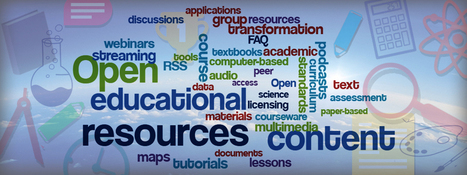These days, students and their parents expect information to be immediately available. And while the internet has a wealth of resources, users are rightfully not always confident in their accuracy. Furthermore, many works are protected by copyrights, which prevent them from appearing online in their entirety. So educators must find creative ways to meet students’ expectations of easily accessible digital resources while still adhering to copyright laws and strict budgets. As a result, open educational resources (OERs) are gaining popularity among teachers and students. Here we look at five questions you may have as you evaluate open educational resources to help you consider the best way to provide materials to use in your classrooms.
Via Elizabeth E Charles



 Your new post is loading...
Your new post is loading...








